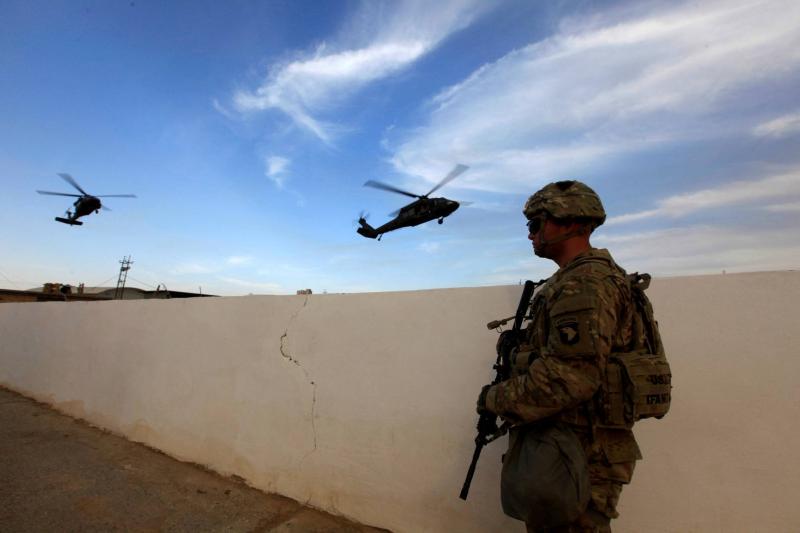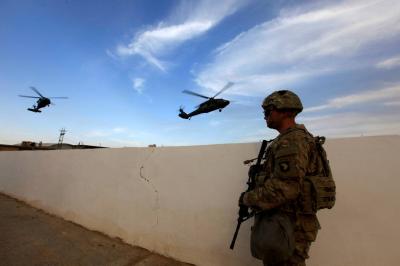Since the launch of the "Flood of Al-Aqsa" operation at dawn on October 7, the Iraqi armed factions have announced that they will enter into confrontation with US interests should the United States be involved in supporting Israel. They have effectively begun to implement their threats by targeting the American presence in Iraq with missile attacks and drone strikes. The number of attacks carried out by the factions has surpassed 17, targeting the Victoria base near Baghdad Airport, the Harir base in Erbil in northern Iraq, as well as the Ain al-Asad base in western Iraq, which has borne the brunt of the targeting operations, encountering two attacks in a single day.
Security expert Mukhlid Hazim states that the groups targeting American bases in Iraq are newly established formations. In a conversation with "Baghdad Today," Hazim observed that "the armed formations that have recently claimed responsibility for the bombardment of the bases where US forces are stationed are newly established groups in terms of their names." He considers these actions to be part of the "Flood of Al-Aqsa" within the resistance axis and the unity of fields, indicating that "the successive targeting occurring in Iraq, Lebanon, and Syria is being conducted with clear coordination."
He pointed out that "the targeting operations embarrass Al-Sudani's government, especially in light of agreements and understandings regarding the non-targeting of US interests," adding that they occur in a sovereign country with a government that possesses security agencies and an army, meaning that these actions fall outside state control. Hazim noted that Al-Sudani is engaging in dialogue with traditional resistance factions that are part of the government, which has led to a statement being issued to pursue the formations targeting military bases.
Hazim continued, noting that "the groups that are bombing the military bases housing US troops may either be "shadow formations" of traditional factions or special groups operated from outside the borders." He emphasized that the government is responsible for neutralizing them to avoid impacting the political and security situation in the country.
The security expert pointed out that "the more events unfold in Gaza, the more attacks on the bases hosting US troops will increase." However, he indicated that the latter still considers what is happening to be within the framework of natural engagement rules. He added that if they feel their interests are threatened, they will respond, as suggested by officials in the White House, which indicates that there will be a reciprocal response. Consequently, there could be a mix of conflicts that Iraq is better off avoiding, particularly since the government is trying to build bridges of trust with the regional and international environment, and any conflicts could lead to diplomatic withdrawals, sending a negative message on the overall scene.
On October 27, the "Islamic Resistance" in Iraq announced the targeting of the "American occupation base in Al-Tanf, Syria, with two drones that struck their targets directly," according to a statement issued early Saturday in October. This follows earlier reports from media outlets citing sources that explosions were heard inside the Al-Omar field base in the eastern Deir ez-Zor countryside and the Al-Jer airport in the Al-Hasakah countryside in eastern Syria. The targeting of the American presence in Syria continues, becoming more frequent in recent times through rocket and drone attacks on American installations in both Iraq and Syria.




